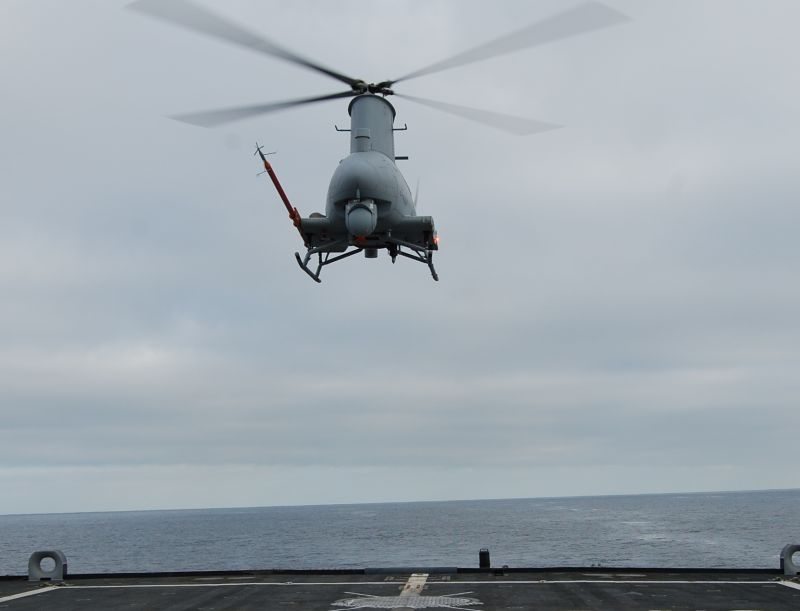The Navy recently experienced two unrelated operational mishaps with the MQ-8B Fire Scout unmanned helicopter.
There were no injuries to personnel and no damage to other aircraft.
An MQ-8B Fire Scout operating off USS Simpson (FFG-56) March 30 was ditched at sea upon returning from a maritime surveillance mission in support of Africa Partnership Station. The air vehicle was unable to achieve UAS Common Automated Recovery System (UCARS) lock on, a requirement for landing aboard a ship at sea. After multiple approaches and exhaustive troubleshooting by operators, the aircraft was positioned a safe distance from Simpson and the flight was terminated. Subsequently, Simpson crew performed a nighttime recovery of the aircraft.
The second incident occurred April 6 when an MQ-8B operating in northern Afghanistan crashed while conducting a routine surveillance mission in support of Regional Command North. The cause of the crash is unknown at this time.
The Navy is conducting a thorough investigation of both incidents.
Since 2006, the MQ-8B Fire Scout has accumulated over 5,000 flight hours with more than 3,000 flight hours tallied during operational deployments. Fire Scout has played a significant role in multiple operations including three counter-piracy actions, a search-and-seizure operation, support of successful transits of the Strait of Hormuz; completion of a special operations proof of concept; and use as an intelligence, surveillance and reconnaissance asset for Operation Odyssey Dawn in Libya. In Afghanistan alone, Fire Scout has provided significant support to ground commanders by enhanced situational awareness to joint forces closely engaged against enemy combatants.
In light of the recent mishaps, the Navy has temporarily suspended Fire Scout flight operations for 14 air vehicles in inventory while system performance and operational procedures are reviewed.










